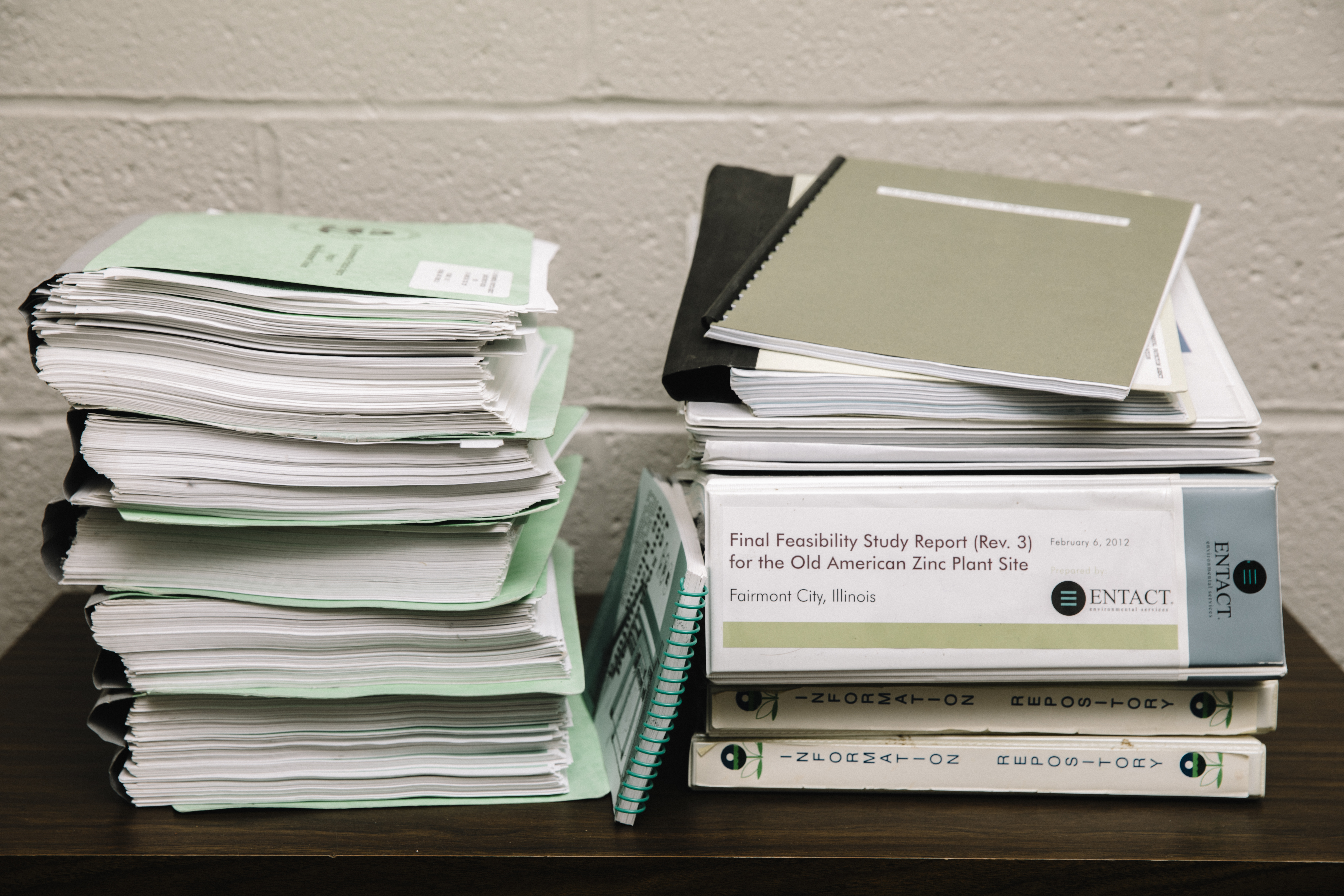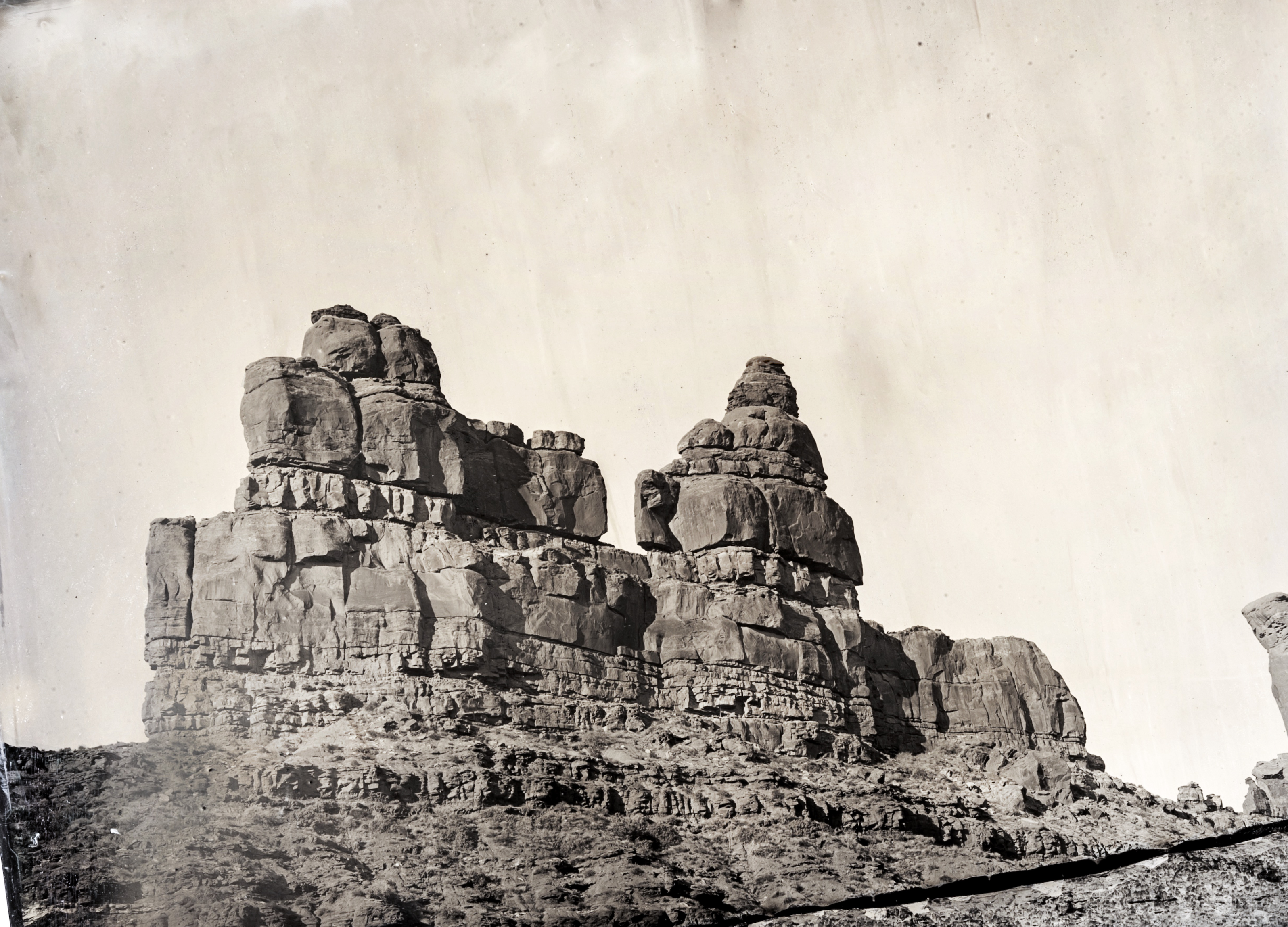A weekly newsletter for Pacific Standard Premium members.

(Photo: William Widmer)
Your Five Essential Reads
A rundown of five of our most important and timely stories from the past week.
- Tensions continue to simmer along the Israeli-Palestinian border. Protests by residents of Gaza City have been met with sometimes lethal force by the Israelis alongside a mounting war of words between the two-factions. Contributor Kenneth R. Rosen has been covering political situations across the Middle East in his series Lands of Metamorphosis. This piece examines the dire state of health care in the West Bank—painting a picture of one grievance held by Palestinians toward the Israeli government. Read the story here.
- Writers Kevin Stark and Winifred Bird investigate toxic Superfund sites across the country for an in-depth feature about how the Environmental Protection Agency has failed to clean up these dangerous sites or inform the local populations of the risks they face from them—leaving immigrants and minorities in these communities to fend for themselves. Read the story here.
- Contributing writer Jimmy Tobias continued his investigation into the criticism-laden Department of the Interior (DOI) with another records request that revealed a top department employee met with his former employer—a company connected to conservative financiers the Koch brothers—while it was involved in legal action against the department. Read the full story here and the rest of Tobias’ coverage on the DOI and other public lands issues here.
- Editorial assistant Jack Denton spoke with law professor and director of the Space, Cyber, and Telecom Law Program at the University of Nebraska, Justin Hurwitz, about the Federal Communications Commission, net neutrality, and what the Senate gains politically through trying to block the rollback of net neutrality with legislation. Read the full interview here.
- Contributing writer David M. Perry spoke to former George W. Bush ethics lawyer and current Senate hopeful Richard M. Painter about single-payer health care, his beef with the National Rifle Association, and why he’s running for office as a Democrat. “This isn’t about being a Democrat; I’m an American before party,” Painter says. “I’ve been a pain in the rear for the Republican Party.” Read the rest of the conversation here.
The Edit Podcast: Experiments in Biochar
This week on a special episode of The Edit, Pacific Standard staff writer Kate Wheeling reads her recent feature, “The Great, Chaotic Biochar Experiment.” For this story, Wheeling traveled into the jungles of Peru to meet with Australian plant ecologist Brenton Ladd. She follows Ladd as he attempts to re-engineer the notoriously nutrient-poor soils in the Amazon, and, in the process, save the world’s trees. The piece is available online now exclusively for PS Premium members. You can listen to the audio version on SoundCloud, or in The Edit podcast feed on Apple or Spotify.
You can receive every new episode of The Edit as soon as they become available by subscribing to the podcast on iTunes, Spotify, or SoundCloud. Every episode is also available for Premium members here.

Shrinking Bears Ears
In southeastern Utah, set among Martian landscapes of red sandstone canyons and forested buttes, stand two endearingly stumpy mounds. The formations, aptly called Bears Ears for their cartoonish similarity to their namesake, occupy an infinitesimal fraction of the land once populated by Native tribes of the Southwest, including the Navajo, Pueblo, Hopi, Ute Indian, and Ute Mountain Ute.
Known collectively as the Bears Ears Inter-Tribal Coalition, the tribes successfully lobbied then-President Barack Obama to designate 1.35 million acres of Bears Ears-adjacent land a national monument in 2016, a relatively small stretch compared to the 230 million acres of beloved geological wonders already protected under the Antiquities Act, like the Grand Canyon and Mount Olympus. The Bears Ears monument is home to some 100,000 archaeological sites, ranging from thousand-year-old petroglyphs to preserved cliff dwellings—large swaths of which sit atop coveted deposits of tar sands, uranium, potash, oil, and gas.
Two years after he created the Antiquities Act, Teddy Roosevelt told the 1908 Conference of Governors that, while America had “become great [because] of the lavish use of our resources,” it was “ominously evident” we were rapidly exhausting those resources. It was a plea for leaders to recognize the natural, cultural, and historical value of our lands, and to use judiciously those resources that remain. Almost exactly 110 years later, President Donald Trump called such efforts to reduce toxic energy consumption “stupid.”
Last December, Trump told Utahns he would shrink the Bears Ears monument by 85 percent. Natural resources, he said, should not “be controlled by a small handful of very distant bureaucrats.” Those in the state government who supported the reduction practically salivated while speculating about the region’s energy-production potential. Barring a successful legal challenge, the resource-oglers could get their wish: thousands of acres of artifacts silent beneath the weight of a whining oil rig. Two thousand feet above the extraction, the buttes will stand, listening to the cadence of human life, as they have for the last 14,000 years.
—Morgan Baskin, Editorial Assistant

Since We Last Spoke: A Tool to Tackle Sexual Assault on College Campuses
Updates to stories from the Pacific Standard archive.
Last year, the University of Denver became the latest school to partner with Callisto, an online platform that helps college students report sexual assault. In total, 13 schools across the United States have adopted the reporting system.
In 2015, Pacific Standard profiled the platform’s creator, Jessica Ladd. After experiencing an assault and a traumatic reporting process as a student at Pomona College, Ladd decided to create the tool she wished had been available to her: one that counsels survivors on their options, and lets them know if anyone else has lodged a complaint against the same offender. It’s not just about combating the chronic underreporting of assaults; Callisto’s data on re-offenders could help researchers understand perpetrators better, and find a way to prevent assaults. “It’s only once you start having people naming names that you can start to build a network, and understand a network,” Ladd said.
Ladd called the tool “a very safe, supportive space where you do feel believed, you do feel reinforced, you do feel like you have agency over what happens next.”
Apparently universities agree with that sentiment.
PS Picks
PS Picks is a selection of the best things that the magazine’s staff and contributors are reading, watching, or otherwise paying attention to in the worlds of art, politics, and culture.
Hanging Out in Purgatory: Tyler Childers, whose album Purgatory has been on heavy rotation on my Spotify for weeks, is from Kentucky. Many of his songs are steeped in the people and places of his home. As such, there are scenes of lapsed Christianity, of coal mining, and of moonshine.
I have never been to Kentucky (I’m from a small town 570-some miles east, in Pennsylvania), but I find myself able to relate. I suspect Childers will remind a good many people of where they grew up, regardless of geography. That’s because his songs deal in simple truths, diving into the tiny interactions and observations that define our days. In that way, Pennsylvania becomes Kentucky, and—in a similar transference—the listener comes to inhabit Childers’ characters. In my case, substitute Yuengling for moonshine.
His love song “Feathered Indians” opens with a story, delivered in a scratchy yelp, that’s at once sheepish and suggestive:
Well my buckle makes impressions
On the inside of her thigh.
There are little feathered Indians
Where we tussled through the night.
It’s the sort of admission—their sleepover was apparently of the “clothes on” variety, hence the buckle-on-skin indentation—that’s eschewed by many artists for soppier and sexier—and less complicated—narratives. It’s also one we can all, in one form or another, relate to. Love, particularly of the sort Childers sings about here, isn’t just sensual nights; it’s also awkward mornings.
—Max Ufberg, Digital Director
PS in the News
A look at where our stories and staff surface in the national conversation.
- Contributing writer Seth Masket’s breakdown of Colorado’s recent legislative season—one that has been surprisingly productive—was included in Bloomberg writer Jonathan Bernstein’s morning links this past Tuesday.
- New York magazine political columnist Ed Kilgore referenced staff writer Francie Diep’s look at a newly formed congressional “Freethought Caucus” in his piece for the Daily Intelligencer.
- Michiko Kakutani, the former chief book critic of the New York Times, shared contributor Sophie Yeo’s piece about how to protect rare books and manuscripts from climate change.
- Kate Wheeling’s story about the dismantling of an iconic California oil rig was shared by the Society of Environmental Journalists.
The Conversation
Is the Christian Right Driving Americans Away From Religion? (PSmag.com, May 1st)
- The answer is absolutely yes. They are pushing people, and especially younger people from the pews. Their quest for political power is so antithetical to the teachings of Jesus it’s almost comical. —Lauri Scribner
More Americans Are Being Lured to Canadian Universities (PSmag.com, May 7th)
- Can you blame these students? [Donald Trump] has set a striking tone that almost demonizes academic and intellectual integrity. Reason, tact, discipline, reflection? All endangered species in the very visible national leadership. —Matt Jones
On Climate Change, a Disconnect Between Attitudes and Behaviors (PSmag.com, May 4th)
- When my partner was still alive, I used to debate this with him and mountain-climbing friends all the time. I’d ask them to count all the miles they drove each week back and forth to and from the mountains and then explain how this dovetailed w/ their purported love of the environment. —Litsa Dremousis
- I’ve met folks that are believers and happy to change, once the policy hammer makes them, but damned if they will change behaviors before that. —Jeff Horton
Silence Breaking Woman (May 2018)
- I keep trying to say something profound about how personal yet familiar and haunting I found this essay, but maybe you should just read it for yourself. Damn, Terese Marie Mailhot, that’s really something. Thank you. —Rebecca Roanhorse
If you have any thoughts about this newsletter or our work—what you like/didn’t like/want to see more of—you can reach us at premium@psmag.com. If you’re not already, become a premium member by following the button below. As we continue to build out the benefits of a premium membership to Pacific Standard, we want to hear what would be most valuable to you.





